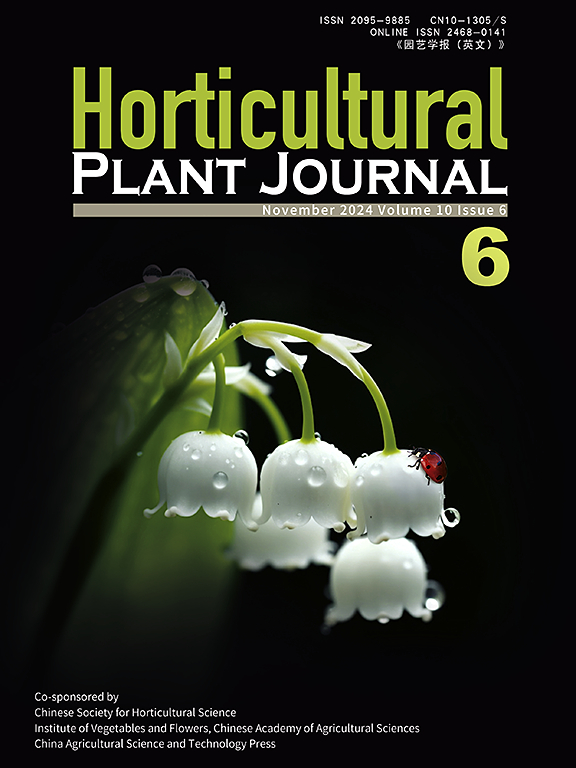A comprehensive report on glucosinolate involvement in abiotic stress responses in Brassicaceae family
IF 5.7
1区 农林科学
Q1 HORTICULTURE
引用次数: 0
Abstract
Being sessile organisms, plants confer various environmental challenges that effect their productivity. Secondary metabolites, including glucosinolate (GSLs), are synthesized in plants to counteract environmental stresses through indirect or direct defensive responses. GSLs are secondary metabolites containing nitrogen and sulfur abundantly found in Brassicaceae, playing pivotal roles in plant stress tolerance. Herein, we delve into emerging insights and unanswered questions regarding the regulation of glucosinolate biosynthesis and their role in stress responses. This review offers comprehensive insights into the diversity and participation of GSLs in sensing osmotic stress and signaling responses during plant development under abiotic stress conditions. Furthermore, we explore the promising research prospects for understanding GSL-mediated stress responses, providing a conceptual foundation for investigating the molecular mechanisms underlying abiotic stress response mediated by GSLs. Future research endeavors should focus on enhancing abiotic stress tolerance in芥子油苷参与十字花科植物非生物胁迫反应的综合报道
作为无根生物,植物赋予各种影响其生产力的环境挑战。次生代谢物,包括硫代葡萄糖苷(GSLs),是植物通过间接或直接的防御反应来抵消环境胁迫的产物。GSLs是十字花科植物中丰富的含氮和硫的次生代谢产物,在植物的抗逆性中起着关键作用。在此,我们深入研究关于硫代葡萄糖苷生物合成及其在应激反应中的作用的调控的新见解和未解决的问题。本文综述了非生物胁迫条件下植物发育过程中GSLs在渗透胁迫感知和信号响应中的多样性及其参与。此外,我们还探讨了gsl介导的胁迫反应的研究前景,为研究gsl介导的非生物胁迫反应的分子机制提供了概念基础。未来的研究工作应集中在通过基因工程和组学方法提高芸苔属植物对GSL的响应,从而提高其非生物抗逆性,从而应对全球粮食安全挑战。必须指出的是,发展中国家的农民经常忽视这些方法,而在不利的条件下求助于农用化学品来促进植物生长。因此,必须研究环境友好的植物代谢物替代品,包括硫代葡萄糖苷,以通过种子处理或叶面施用改善不利条件下的植物生长。
本文章由计算机程序翻译,如有差异,请以英文原文为准。
求助全文
约1分钟内获得全文
求助全文
来源期刊

Horticultural Plant Journal
Environmental Science-Ecology
CiteScore
9.60
自引率
14.00%
发文量
293
审稿时长
33 weeks
期刊介绍:
Horticultural Plant Journal (HPJ) is an OPEN ACCESS international journal. HPJ publishes research related to all horticultural plants, including fruits, vegetables, ornamental plants, tea plants, and medicinal plants, etc. The journal covers all aspects of horticultural crop sciences, including germplasm resources, genetics and breeding, tillage and cultivation, physiology and biochemistry, ecology, genomics, biotechnology, plant protection, postharvest processing, etc. Article types include Original research papers, Reviews, and Short communications.
 求助内容:
求助内容: 应助结果提醒方式:
应助结果提醒方式:


